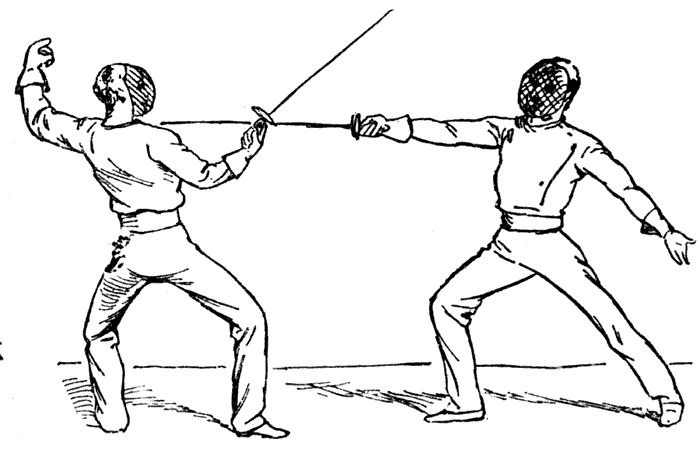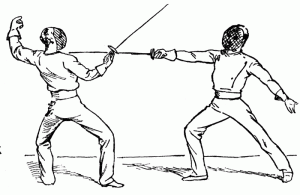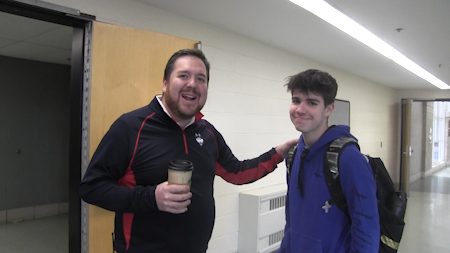It’s easy to forget that at one point our favorite athletes were spending days practicing to become a natural. It’s easy to forget that at one point they were entering tournaments and games to get their name around. It’s easy to forget that our most talented Olympians had to work and start their journey somewhere.
And like those Olympians, one freshman, Zach Crowel, just took one of his biggest steps towards achieving his dream of going to the Olympics.
For Crowel, fencing is a sport like no other. Fencing is one of the oldest sports of all time. Since it is similar to the act of dueling, fencing was extremely popular during the eighteenth century when wars were fought with swords rather than guns. But there was a sharp decline of people involved in fencing when there was a transformation of weapons used during World War I and World War II. Swords were no longer the weapon of choice, it was rather a gun. And though there was a sharp decline, the decline transformed how the sport of fencing would be played in the future. (http://www.hcs.harvard.edu/~fencing/oldweb/history/fencinghistory.html)
In the movies, fencing looks to be a rather dangerous sport where the sword can penetrate the body at any given time. But given the right protective equipment made of strong weave, fencers are completely safe. The sword, whether it be the epee, saber, or foil, is made to bend on impact so that the fencer is protected. Since it is a game that is won by the number of touches that one can place on their opponent, fencing is extremely fast and is scored by a technological system. A fencer must get fifteen touches on their opponent before they win.
Getting the first fifteen touches is no problem for Crowel. He has learned the in’s and out’s of the game due to the rigor of his fencing schedule. Starting in the fourth grade, he has been learning the game with his coach, Sandra Marchant, in the Prospect Fencing Club. Since he has been practicing and taking lessons five days a week, Crowel was ready to bring himself to the next level. Perfecting in epee fencing, he began training even harder so that he could qualify for the Junior Olympics. But the process wasn’t easy. Only three people from the state of Connecticut under the age of 17 could be sent to the Junior Olympics. Through hard work and determination, he was one of the lucky ones on his way to achieve some of his dreams.
Before he knew it, he was on his way to the Junior Olympics in Baltimore, Maryland. On the day of the event, he met new athletes and was faced with new challenges. It was a learning experience and at the end of the day he placed two hundreth of the two hundred and fifty fencers in the event. Not many can say that by the age of fifteen, they have already competed in the Junior Olympics, just a few levels away from the real deal.
Taking in what he experienced at this event, Crowel continues to practice and perfect his style. He knows that one of his weaknesses is maintaining mental composure, but since he has started at such a young age, he has time to improve. And he even has time perfect his perfections.
“As a fencer, my strengths are being able to read what my opponent is going to do next,” stated Crowel.
Crowel’s coach, Sandra Marchant, couldn’t be more impressed with what he has accomplished thus far and is looking forward to what he will do in the future.
“Zach has the willingness to work extremely hard and put in the time it takes to succeed,” stated Marchant.
Crowel continues to work hard to achieve his goals. With all that he has already accomplished, it’s possible that one day he could become one of those Olympians that we all aspire to be.




















